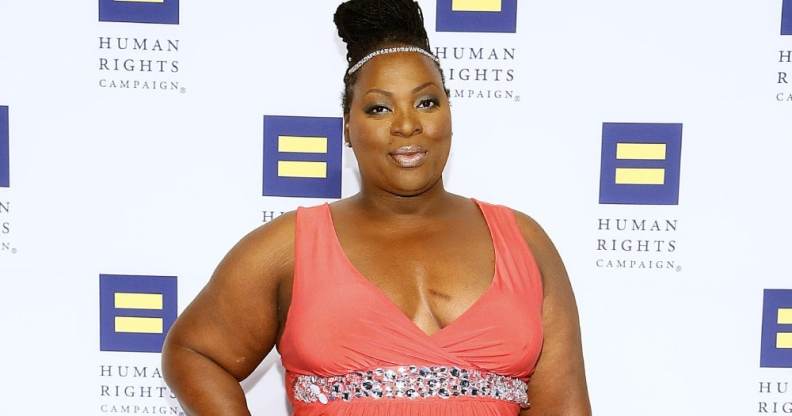Fearless advocate Tori Cooper is first Black trans woman appointed to presidential HIV council

Tori Cooper. (Getty
Tori Cooper is the first Black trans woman to be appointed to the presidential HIV council in the organisation’s history.
Sworn in on 4 August, Cooper brings her 30 years of experience in advocacy, LGBT+ rights, and healthcare to the Presidential Advisory Council on HIV/AIDS, which was created in 1995 to provide the federal government with advice and policy recommendations regarding HIV/AIDS.
She currently serves as director of community engagement for the Human Rights Campaign’s Transgender Justice Initiative, and is looking forward to representing her community as a Black trans woman on the presidential council.
“We are honoured and excited that the Biden-Harris Administration is recognising the importance of including transgender people, especially Black transgender women, in this life-saving work,” Cooper said in a statement.
“I am eager to advocate on behalf of all transgender and non-binary people, including all trans and non-binary people who are living with HIV. This work has never been more critical.”
Cooper told NBC News she began advocating for trans people living with HIV 20 years ago on a program called Sister to Sister with the Centers for Disease Control (CDC), which was designed as an HIV risk-reduction program. Cooper and another trans advocate adapted the program to include and meet the sexual health needs of trans women.
Speaking to NBC News, she said that her role with the CDC was “the beginning of [her advocacy work], and it’s just been going ever since, full speed ahead”.
According to HRC, at least one in 20 trans women are living with HIV.
A 2016 report from the United Nations found that transgender people are 49 times more likely to be living with HIV than cis people and are often left out of the narrative. New research suggests that being able to access gender-affirming surgery is linked to viral suppression.
Additionally, the CDC found that 62 per cent of Black trans women were living with HIV in 2020, in comparison to 25 per cent of Hispanic/Latina trans women and 17 per cent of white transgender women.
Tori Cooper explained to NBC that there are “too many” policy gaps that have contributed to these racial disparities, and is hoping the presidential council will prioritise a number of policy changes to help address them. However, those policies may not be what people normally “think of as part of health care”.
Though HIV is still stigmatised, racism plays a large part in preventing access to healthcare for HIV. There are “structural determinants of health that we’ve seen throughout the COVID epidemic, how Black and brown folks are disproportionately affected” that also exist within HIV care, according to the Black AIDS institute.
Though she’s looking forward to working with the council, Cooper says she is looking forward to a time when her role is no longer needed.
“I’m looking forward to being unemployed and having to go and sell shoes for a living,” she said.

